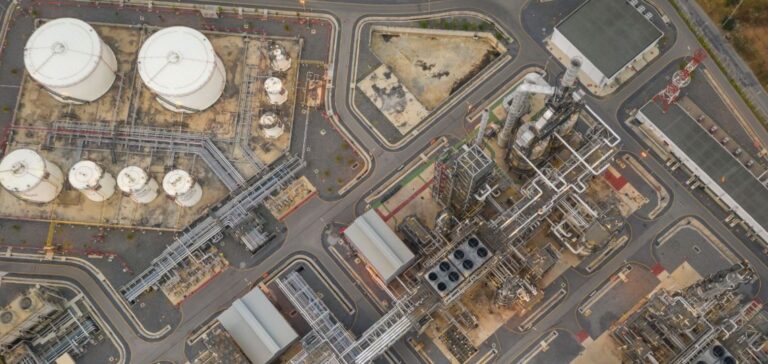The Fouta refinery construction project, in development for nearly four years, is entering its final phase. The facility, located about 30 kilometers from Pointe-Noire, is expected to be commissioned by the end of 2025. It is designed to produce 2.5 million tons of petroleum products per year, including diesel and gasoline.
A Lever for Congo’s Oil Industry
Congo, the fifth-largest crude oil producer in Africa, remains heavily dependent on imports to meet its refined product needs. In 2023, the country imported the equivalent of $140 million in refined petroleum products, according to The Observatory of Economic Complexity (OEC). The current refining capacity relies on a single facility operated by Congolaise de raffinage (Coraf) in Pointe-Noire.
With a $600 million investment, the Fouta refinery aligns with the national strategy to reduce this dependence. By increasing the local supply, this infrastructure is also expected to mitigate recurrent fuel shortages and stabilize the domestic market.
A Structuring Project for Energy Investment
The launch of this refinery comes amid reforms aimed at enhancing the attractiveness of Congo’s oil and gas sector. In this context, the Congo Energy & Investment Forum (CEIF), scheduled for March 24-26, will serve as the official platform for announcing the new oil and gas licensing cycle.
Additionally, the Congolese government is counting on the refinery’s economic impact to boost employment and attract foreign investment into the downstream oil sector. The expansion of this infrastructure could mark a crucial step in the country’s energy self-sufficiency and its ability to export refined products to regional markets.






















